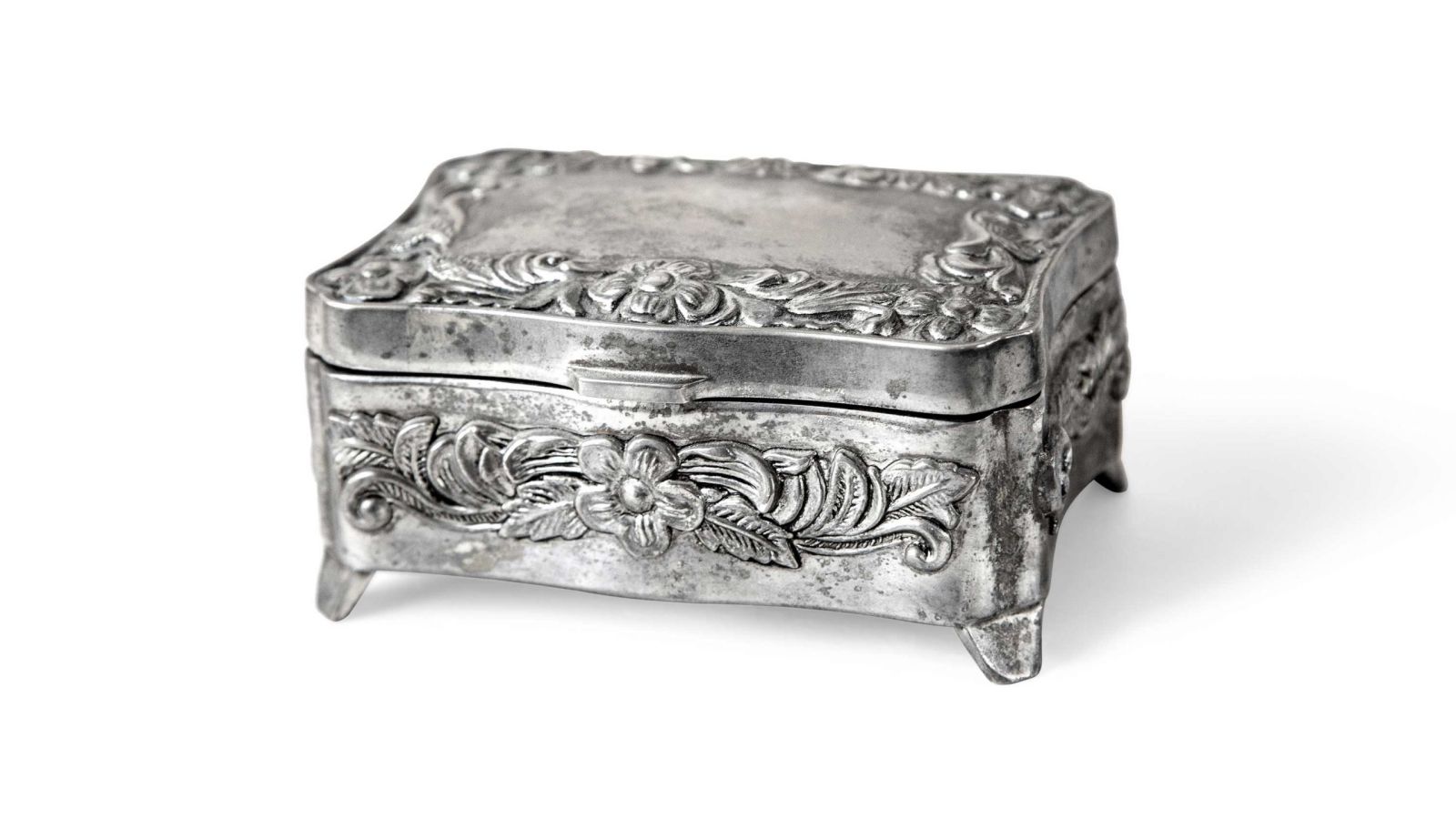Changing One’s Name in Islām
Dr. Abū Wāʾil Musa Shaleem


The scholars of Islām agree that everyone must have a name. Ibn Ḥazm (d. 456 AH) (رحمه الله) mentioned: “The scholars agree that every man and woman must have a name.”1 However, Islamic law may require some people to change their names. In fact, Allāh’s Messenger (ﷺ) himself changed many people’s name. He even changed the names of some places.
Sahl (رحمه الله) narrated:
The Prophet (ﷺ) said: “Where is the baby?” Abū Usayd (رضي الله عنه) replied: “We sent him home.” The Prophet (ﷺ) said: “What is his name?” Abū Usayd (رضي الله عنه) said: “So and so [is his name].” The Prophet (ﷺ) said: “No! His name is Al-Mundhir [which includes the meaning a good sign and a bearer of news].”2
Also, Hishām ibn ʿĀmir (رحمه الله) reported: “I visited the Prophet (ﷺ). He asked: ‘What is your name?’ I said: ‘[My name is] Shihāb [which means flames from a fire].’ He responded: ‘No! You are Hishām [which includes the meaning generous and honourable].’”3
Additionally, Usāmah ibn Akhdarī (رحمه الله) narrated:
“A group of people visited the Prophet (ﷺ), and a man called Aṣram (رضي الله عنه) accompanied them. The Prophet (ﷺ) said: ‘What is your name?’ He replied: ‘I am Aṣram [Aṣram is derived from the word to sever, or to cut, or to harvest which implies destruction].’ The Prophet (ﷺ) said: ‘No! You are Zurʿah [which mean to cultivate and to grow].’”4
Imām Abū Dāwūd (d. 275 AH) (رحمه الله) said:
The Prophet (ﷺ) changed the names Al-ʿĀs, ʿAzīz, ʿAtalah, Shayṭān, Al-Ḥakam, Ghurāb, and Hubāb. He changed Shihāb’s name to Hishām. He changed Ḥarb’s name [which means war] to Salām [which means peace]. He changed Al-Muḍṭajiʿ’s name [which means the one who reclines] to Al-Munba’ith [which means the one who stands]. He changed the name Banū al-Zinyah [which means the children of fornication] to Banū al-Rushdah [which means the children of rightness]. He changed the name Banū Mughwiyah [which means the children of a seductive woman] to Banū Rushdah [which means the children of rightness]. He [even] changed the name of the land ʿAfirah [which means barren] to Khaḍirah [which means green and fertile]. He changed the name of the mountain path Shiʿb al-Ḍalālah [which means the mountain path of misguidance] to Shiʿb al-Hudá [which means the mountain path of guidance]. I omitted the chains to be concise.5 6
Furthermore, Allāh’s Messenger (ﷺ) would often explain the reason for changing a name. On one occasion, he (ﷺ) explained exactly why using the name Barrah which means God fearing and pious is detested. Ibn ʿAbbās (رضي الله عنه) reported: “Juwairiyah (رضي الله عنها) was once called Barrah, so the Prophet (ﷺ) changed her name to Juwairiyah because he dislike if it was said: ‘I left Barrah [i.e. I left piety which can be interpreted as I denounced faith/piety].’”7 On another occasion, the Messenger (ﷺ) carefully explained why using the name Al-Ḥakam is prohibited. Hāniʾ ibn Yazīd who was formally called Abū al-Ḥakam (رضي الله عنه) said:
When my people and I visited Allāh’s Messenger (ﷺ), Allāh’s Messenger (ﷺ) heard them calling me Abū al-Ḥakam, so he (ﷺ) said to me: “Allāh is Al-Ḥakam [i.e The Judge], and judgement belongs to Him. Why are you called Abū al-Ḥakam?” I replied: “When my people disagree about a matter, they come to me, and I judge between them, and both parties are satisfied with my decision.” The Messenger (ﷺ) said: “This is beautiful!” He (ﷺ) then asked: “Do you have any children?” I replied: “I have Shurayḥ, Muslim, and ʿAbdullāh.” The Prophet (ﷺ) then asked: “Who is the oldest?” I replied: “Shurayḥ [is the oldest].” He (ﷺ) said: “You are Abū Shurayḥ.”8
Al-Nawawī (رحمه الله) mentioned:
These Aḥādīth prove that a distasteful or unpleasant name should be changed to a pleasant one. Numerous Aḥādīth mention that the Messenger (ﷺ) would change many of the Companions’ names. In fact, the Messenger (ﷺ) would even explain the reason for this alteration.9
This alteration takes these general verdicts:
1. A Mandatory Alteration
For some people, a name change is mandatory. These reasons are from the many reasons that will mandate this alteration:
A. Having the Name of a False God
Anyone who has the name of a false god, like Manāf or Hubal [Hubal was an idol that existed in Makkah and was falsely worshipped by Quraysh], must change his name.
B. Having a Name That Contains the Name of a False God
Anyone whose name contains the name of a false god—like ʿAbd al-ʿUzzá [i.e. a slave or a servant of Al-ʿUzzá. Al-ʿUzzá was a tree that was falsely worshipped by the polytheists in the pre-Islamic period], ʿAbd al-Lāt [i.e. a slave or a servant of Al-Lāt. Al-Lāt was a stone that existed in Ṭāʾif and was falsely worshipped by the polytheists in the pre-Islamic period], or ʿAbd Hubal—must change his name.
C. Having a Compound Name That Affirms Servitude and Sovereignty to Anything Other than Allāh
Anyone who has this type of name—like ʿAbd al-Kaʿbah which means a slave or a servant of the Kaʿbah, ʿAbd al-Nabī which means a slave or a servant of the Prophet (ﷺ) or ʿAbd al-Ḥusayn which means a slave or a servant of Al-Ḥusayn—must change his name.
Ibn Ḥazm (رحمه الله) stated: “The scholars agree that using any name that affirms sovereignty to anything other than Allāh—like ʿAbd al-ʿUzzá, ʿAbd Hubal, ʿAbd ʿAmr, or ʿAbd al-Kaʿbah—is ḥarām.”10 This Ḥadīth proves this. Hāniʾ ibn Shurayḥ (رضي الله عنه) reported:
A group of people visited the Prophet (ﷺ). He heard the group calling a man ʿAbd al-Ḥajar [which means a slave or a servant of a particular stone], so the Prophet (ﷺ) asked him: “What is your name?” He responded: “ʿAbd al-Ḥajar is [my name].” The Prophet (ﷺ) said: “You are ʿAbdullāh.”11
Ibn al-Qayyim (رحمه الله) stated: “Naming someone ʿAbd ʿAlī, ʿAbd al-Ḥusayn, or ʿAbd al-Kaʿbah is ḥarām.”12
D. Having One of Allāh’s Names or Having a Name That Is Specific to Him
If anyone was given one of Allāh’s names or was given a name that is specific to Him—like Al-Aḥad, Al-Ṣamad, and Al-Ḥakam—then he must change this name.
The Prophet (ﷺ) said: “The person named Mālik al-Amlāk [which means the King of Kings] is the most wretched person in Allāh’s sight and the person whom He detests the most on the Day of Resurrection, for the only mālik [i.e. king] is Allāh.”13
Ibn al-Qayyim (رحمه الله) stated: “Using Allāh’s names or using any name that is specific to Him, like Al-Aḥad and Al-Ṣamad, is prohibited.”14
E. Having the Name of a Devil
Anyone called Shayṭān or Iblīs, for example, must change his name. Ibn al-Qayyim (رحمه الله) mentioned: “Using the devils’ names is prohibited.”15
2. A Recommended Alteration
Sometimes, a name change may be recommended. These reasons are from the many reasons that may sanction this alteration:
A. Having a Name Whose Meaning Is Distasteful or Repulsive
Anyone whose name has a distasteful or repulsive meaning—like Ḥarb which means war, Murrah which means distasteful and bitter, ʿĀṣiyah which means sinner, or Ḥazn which means harsh/rough/tough/always serious—should consider changing his name. ʿĀʾishah (رضي الله عنها) narrated: “The Prophet (ﷺ) would change a repulsive name.”16
The Prophet (ﷺ) said: “Allāh detests the name Ḥarb and Murrah the most.”17
Also, ʿAbdullāh ibn ʿUmar (رضي الله عنهما) reported: “Allāh’s Messenger (ﷺ) changed ʿĀṣiyah’s name. He (ﷺ) said: ‘You are Jamīlah.’”18
Furthermore, Saʿīd ibn al-Musayyab (رحمه الله) narrated:
“My grandfather (رضي الله عنه) visited the Prophet (ﷺ). The Prophet (ﷺ) said to him: ‘What is your name?’ He responded: ‘Ḥazn [is my name].’ The Prophet (ﷺ) said: ‘You are Sahl.’ My grandfather said: ‘I will not change the name my father gave me.’”19
Ibn Baṭṭāl (d. 449 AH) (رحمه الله) said: “This Ḥadīth proves that altering a distasteful name is not obligatory; rather, it is recommended.”20 Ibn Baṭṭāl deduced this verdict from this Ḥadīth because Ḥazn (رضي الله عنه) refused to change his name, and if changing his name was mandatory, Allāh’s Messenger (ﷺ) would have forced him to change it; however, Ḥazn (رضي الله عنه) refused to change his name which suggests that the Messenger (ﷺ) simply encouraged him to change it.
B. Having a Name That Contains Self-praise
Anyone whose name contains self-praise, like Barrah or Īmān, should consider changing his name.
Muḥammad ibn ʿAmr ibn ʿAṭāʾ (رضي الله عنه) reported:
I named my daughter Barrah, but Zaynab daughter of Abū Salamah (رضي الله عنها) informed me that Allāh’s Messenger (ﷺ) forbid her from using this name. She said: “I was also called Barrah, but Allāh’s Messenger (ﷺ) said: ‘Do not hold yourself to be pious. Allāh alone knows the people of piety.’ The Companions said: ‘What should we call her?’ He said: ‘Call her Zaynab.’”21
C. Having a Name Whose Antonym Can Have a Negative Connotation
Anyone having a name whose antonym can have a negative connotation—like Aflaḥ which means successful and Yasār which means wealthy—should consider changing his name. If someone was questioned about their whereabouts and they were absent, it would seem as though Aflaḥ is unsuccessful and Yasār is poor when their presence is negated.
The Messenger (ﷺ) said: “Do not call your son Yasār, Rabāḥ [which means profit], Najīḥ [which means prosperous], and Aflaḥ, for you may be asked: ‘Is he here?’ And someone would say: ‘No.’”22
D. Having a Non-Muslim Name
In Islamic law, a convert is not required to change his name unless there is a valid reason for this, which is the case if his name affirms servitude and sovereignty to a false god.
Shaykh Ibn Bāz (رحمه الله) said: “A new Muslim is only obligated to change his name if his name affirms servitude and sovereignty to other than Allāh, so if his name is ʿAbd ʿIsá [which means a slave of ʿIsá], he must change his name. However, if his name is George or Paul, then changing his non-Muslim name to a Muslim name is simply recommended.”23
3. A Prohibited Alteration
Sometimes, a name change may be prohibited. There are many examples of this, such as:
A. A Woman Changing Her Name after Marriage
A woman is prohibited from changing her name after marriage. Questioned about a married woman replacing her last name with her husband’s last name, Shaykh al-Albānī (رحمه الله) responded:
This is impermissible because:
[1] This is a non-Muslim practice.
[2] The Prophet (ﷺ) said: “Whoever knowingly claims to be the son of anyone other than his real father has disbelieved.”24 25
B. Knowingly Failing to Ascribe to One’s True Father
Whoever knowingly fails to ascribe to his true father has committed a sin. Therefore, the orphan who replaces his family name with his guardian’s last name is sinful. The Messenger (ﷺ) said: “Whoever knowingly claims to be the son of anyone other than his real father has disbelieved.”26
The Prophet (ﷺ) also said: “If any child or slave ascribes to other than his father or his master, then the curse of Allāh, the Angels, and all of humanity will be upon him.”27
If the orphan is unaware of both his last name and his father’s first name, he may use the name ʿAbdullāh as either his last name or his father’s first name which should be used for his last name.
Endnotes:
- Marātib al-Ijmāʿ, pg. 154.
- Reported by al-Bukhārī (6191) and Muslim (2149).
- Reported by al-Ḥākim in al-Mustadrak (7814), and both Shaykh al-Albānī and Shaykh Muqbil authenticated it.
- Reported by Abū Dāwūd (4954), and Shaykh al-Albānī deemed it authentic.
- Sunnan Abū Dāwūd (4956).
- Some of these chains are defective; however, the general meaning of Imām Abū Dāwūd’s speech is correct.
- Reported by Muslim (2140).
- Reported by Abū Dāwūd (4900) and al-Nasāʾī (5387), and Shaykh al-Albānī graded it authentic.
- Ṣharḥ Ṣaḥīḥ Muslim, vol. 14, pg. 120.
- Marātib al-Ijmāʿ, pg. 154.
- Reported by Ibn Abī Shaybah in al-Muṣannaf (25901), and Shaykh al-Albānī authenticated it.
- Tḥufah al-Mawlūd, pg. 113.
- Reported by Muslim (2143).
- Tḥufah al-Mawlūd, pg. 125.
- Tḥufah al-Mawlūd, pg. 117.
- Reported by al-Tirmidhī (2839), and Shaykh al-Albānī authenticated it.
- Reported by Abū Dāwūd (4949), al-Tirmidhī ((2833) and (2834)), and Ibn Mājah (3728), and Shaykh al-Albānī deemed it authentic.
- Reported by Muslim (2139).
- Reported by al-Bukhārī (6190) and (6193).
- Ṣharḥ Ṣaḥīḥ al-Bukhārī, vol. 9, pg. 346.
- Reported by Muslim (2142).
- Reported by Abū Dāwūd (4958), and Shaykh al-Albānī deemed it authentic.
- Majmūʿ Fatāwá Ibn Bāz, vol. 18, pg. 55.
- Reported by al-Bukhārī (3508) and Muslim (61).
- Ashriṭah Mutafarriqah, 5/304.
- Reported by al-Bukhārī (3508) and Muslim (61).
- Reported by Ibn Mājah (2609), and Shaykh al-Albānī graded it authentic.

















